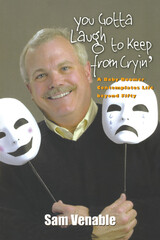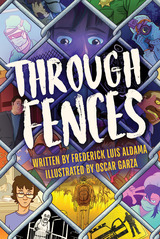5 start with Y start with Y

Finalist, 2018 Miller Williams Poetry Prize
Ya Te Veo takes as its title the name of a mythical tree that eats people. Like the branches of that tree, the poems in this book seem to capture and nourish themselves on a diverse cast of would-be passers-by, drawing their life-force from the resulting synthesis of characters. Among the seized are poets and painters alongside musicians from Garth Brooks to Wu-Tang Clan to the composer Morton Feldman, whose mysterious personality serves as a backdrop in many poems for meditations on intimacy, ethics, and anxiety.
As the phrase “ya te veo” (“I see you”) implies, this is a book interested in revealing what we think is hidden, in questioning the gap inside all of us, a gap between what we feel and what we say and do, making space for our many contradictions.
Like the works of Feldman, these poems focus and recede, experimenting with form in order to accomplish a state of deep concentration. They impersonate sonnets, ghazals, terza rima, monologues, translations, and freestyles, but inexactly, embracing failed imitation as an opportunity to remix the familiar.

W. Scott Olsen and Bret Lott invited a dozen friends to consider one particular calendar month in the place they call home. The result is A Year in Place, a captivating collection of new writing by twelve eminent American writers.
More than a montage of voices and experiences, A Year in Place illustrates, as Olsen and Lott explain in their introduction, the trends in American thinking about who we are and what we care about. Rick Bass takes us to the Yaak Valley of Montana in June, where fawns are arriving, "newly-emerged, knocked-legged and groggy, legs still unfolding from that long sleeping passage." Peggy Shumaker explores the special social and cultural time that is March in Fairbanks, Alaska, where a long winter has whetted the psychic despair of inhabitants who find in the "sky’s unbearable brightness . . . a waking pain beyond endurance." Michael Martone transports us through memory to Indiana in the 1950s where each May a blimp "yawed and floated up," wallowing above a suburban neighborhood on its way to the Indianapolis 500.
These and nine other contributions yield an unforgettable book about "the places we find ourselves blessed enough to be."

Over the course of twelve essays, Shinner holds a mirror up to the complex desires, fears, confusions, and mysteries that shape our bodily perceptions. Driven by the collision between herself and the larger world, she examines her feet through the often-skewed lens of history to understand what makes them, in the eyes of some, decidedly Jewish; considers bras, breasts, and the storied skills of the bra fitter; asks, from the perspective of a confused and grieving daughter, what it means to cut the body open; and takes a reeling time-trip through myth, culture, and history to look at women’s hair in ancient Rome, Laos, France, Syria, Cuba, India, and her own past. Some pieces investigate the body under emotional or physical duress, while others use the body to consider personal heritage and legacy. Throughout, Shinner writes with elegance and assurance, weaving her wide-ranging thoughts into a firm and fascinating fabric.
Turning the category of body books on, well, its ear, You Feel So Mortal offers a probing view of our preoccupation with the body that is both idiosyncratic and universal, leaving us with the deep satisfaction of our shared humanity.

The way Venable figures it, he’s roaring along the road (at about twenty-seven miles per hour, the average speed for someone his age) to Codgerville. You Gotta Laugh to Keep From Cryin’ highlights the observations and lifestyle changes (and a few other things he can’t quite seem to remember at the moment) that Venable has made along the way.
From the day his wife discovers his first ear hair, Venable begins to recognize the signs of old age. Though he had reconciled himself to daily fiber and a distinguished head of gray, he is one step further to an insatiable desire for cafeteria food and permanently leaving his car’s right turn signal flashing.
The news isn’t all bad, though. To his surprise, Venable discovers that his new appearance and habits have qualified him for the senior discount on breakfast at his favorite restaurant. After reading about a scientific study concluding that men’s brains shrink faster than women’s in the normal aging process, Venable has a new source of excuses to explain to his wife why he is missing important dates, times, places, and appointments.
As an official CIT (Codger In Training), Venable delights in other newfound freedoms. He can stand in a fast-food line and stare at the menu for a full two minutes without saying a word (besides, he can’t hear the people behind him grumbling). He can drive as slowly as he likes and has perfected the art of maintaining a death grip on the steering wheel of his car. And he really doesn’t have to listen to anyone anymore; he can merely turn their way from time to time and mumble, “Huh?”
From the swinging doors whose “Push/Pull” directions elude him to the high-tech mysteries of ATMs designed to baffle the elderly, Sam Venable’s rollicking view of life after fifty will leave readers laughing and happy to be a member of the AARP set.
The Author: Sam Venable, recognized for his humor writing in 2000, 2001, and 2002 by the Tennessee Press Association, is a columnist for the Knoxville News-Sentinel. He is the author of a number of books, including Rock-Elephant: A Story of Friendship and Fishing and Mountain Hands: A Portrait of Southern Appalachia. He lives in Knoxville, Tennessee.

From conversations with her own brother about his military experiences to Punch and Judy, from the original tale of Pinocchio to the radio chatter of soldiers in active drone operation, Taylor writes about family, power, and the “theater” of war in a voice both sly and sobering, heartbreaking and hopeful.
READERS
Browse our collection.
PUBLISHERS
See BiblioVault's publisher services.
STUDENT SERVICES
Files for college accessibility offices.
UChicago Accessibility Resources
home | accessibility | search | about | contact us
BiblioVault ® 2001 - 2024
The University of Chicago Press









